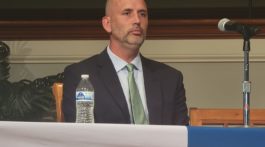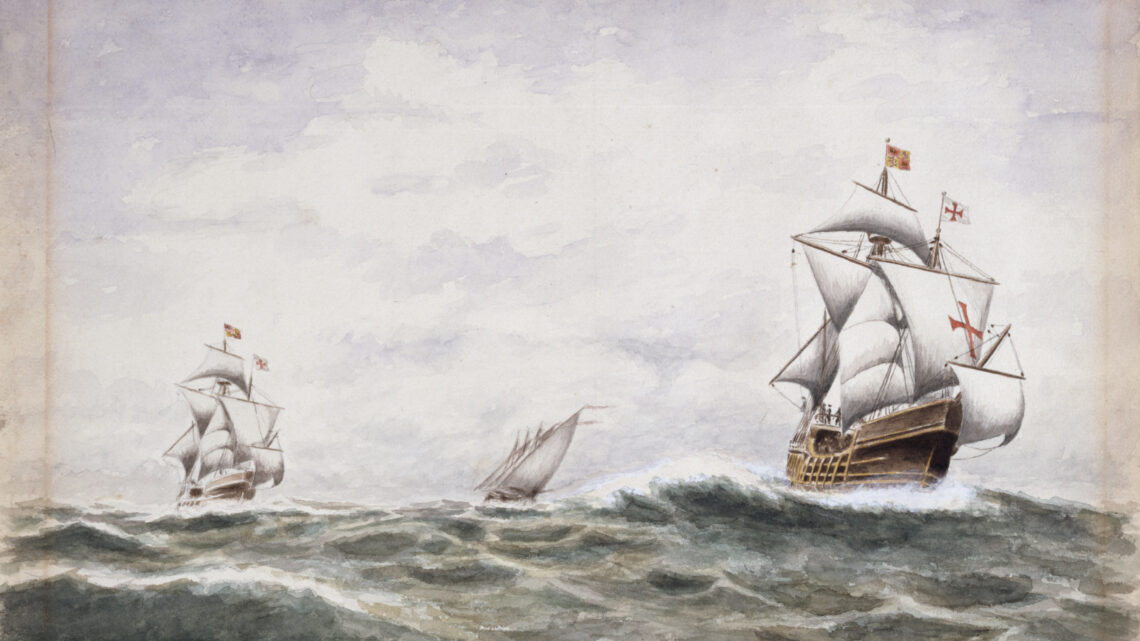by Abdul-Hakim Shabazz, Esq.
Today is Columbus Day. Or, if you prefer, Indigenous Peoples’ Day.
Either way, it’s a holiday built on competing narratives — the heroic “discovery” of a new world versus the inconvenient truths beneath it. Which, frankly, is the perfect metaphor for what happens when discovery hits in a defamation case.
Because nothing strips away myth quite like a subpoena with a deadline.
Last night, one of my favorite online antagonists, David Waters, took a break from calling me every name in the book. Instead, he decided to tell the world his own story — or at least, the version he thinks paints him as a victim.
On Facebook, he wrote about how the Billy Graham Evangelistic Association — a major evangelical nonprofit founded by famed preacher Billy Graham that controls significant charitable and media assets — is suing him for “everything he’s worth.” He claimed they’re accusing him of influencing his aunt before her death to divert assets that were allegedly meant for the organization. The litigation is unfolding in Colorado probate court (Case No. 24PR30783).
Normally, this is where he’d be ranting about me. Not last night. Instead, he was narrating his own legal disaster to the internet like a true Shakespearean tragic hero who doesn’t realize he’s in Act IV.
Then came the replies.
“WOW.”
“I’m shocked.”
“I was planning to donate to Samaritan’s Purse, but now I’m rethinking it.”
And there it was — the real-time impact of discovery. Not mine. His.
Because discovery isn’t just about what you get from someone in court; it’s about what they reveal about themselves when they think they’re in control of the story.
Here’s the thing about defamation litigation: once you get past the noise, the insults, and the performative outrage, it eventually lands in a courtroom where truth isn’t determined by memes or likes. It’s determined by records, testimony, timelines, and exhibits — lots of exhibits. And when that happens, the performance art melts away like fog on Monument Circle.
Discovery is the great equalizer. It doesn’t care if you’ve got a clever hashtag or a small band of online cheerleaders. It doesn’t care if you hit “post” at 2 a.m. after a bourbon-fueled keyboard crusade. Discovery has no chill, no sympathy, and no “delete” button.
And as my own cases advance, those late-night ramblings, contradictions, and “gotcha” posts are about to meet the cold light of Rule 26.
There’s a delicious irony in all of this happening on Columbus Day. For generations, schoolchildren were taught that Christopher Columbus heroically “discovered” America. But in reality, there were already civilizations here — and by the end of his third voyage, Columbus himself was shipped back to Spain in chains after colonial mismanagement and rebellion. Myth met reality, and reality didn’t blink.
And let’s not miss the irony here either: the same guy who spent months falsely accusing me of “stealing from my own campaign” is now facing accusations of his own involving estate assets — the difference being, I don’t have a dead aunt.
Well, technically, I have several aunts. But unlike Mr. Waters, I’ve never been accused of stealing from any of them, either in life or in death.
When someone makes defamatory claims, they’re not just taking cheap shots; they’re stepping into a legal arena governed by rules of conduct, evidence, and accountability. You can’t hide behind memes forever. You can’t “I was just joking” your way out of sworn testimony. The rules don’t care about personal spin.
Waters spent the better part of a year trying to paint me as the villain in his personal morality play. But last night, he became his own main character — not because I made him, but because he couldn’t help himself. And the internet never forgets.
Litigation isn’t sexy. It’s slow, methodical, and often boring. But when discovery lands, it lands hard. It’s the legal equivalent of a GPS recalculating a lie into a set of facts. And what we saw last night is what happens when someone realizes that narrative control isn’t a superpower — it’s an illusion.
So while some people are celebrating Columbus today and others are honoring Indigenous Peoples, I’ll mark the occasion a little differently. I’ll raise a cup of coffee (Splenda and heavy cream, thank you very much) to the unsung hero of truth-telling in 2025: discovery.
Because you can build myths. You can launch smears. You can cosplay as the victim online.
But eventually, discovery arrives like a ship on the horizon — and there’s no hiding from the New World it brings.
Abdul-Hakim Shabazz is the editor and publisher of Indy Politics, a licensed attorney in Indiana and Illinois, and currently the plaintiff in more than a dozen defamation lawsuits — because actions have consequences, even on the internet.











